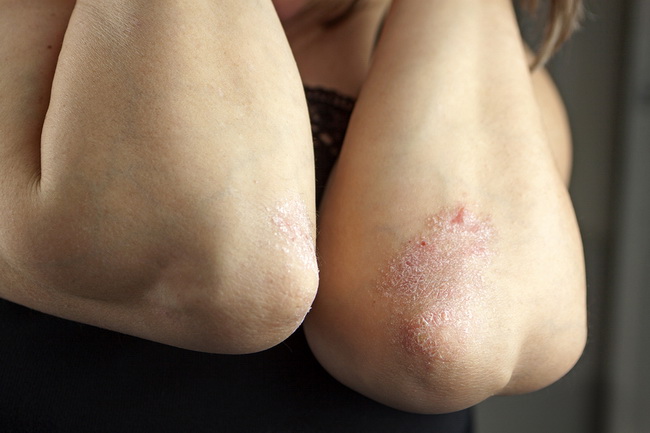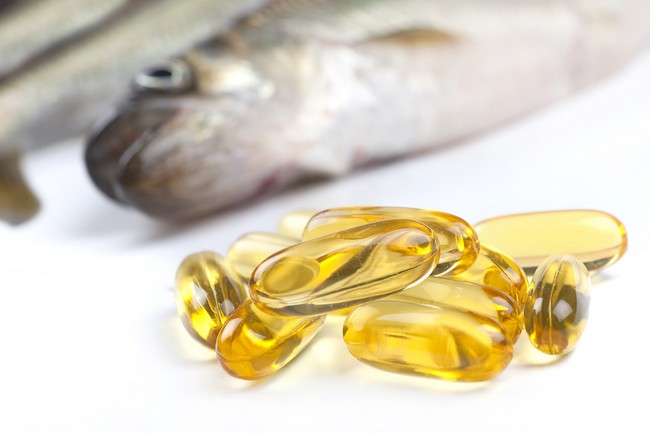- Make It Yourself Lavender Heart-Shaped Bath Bombs!
- 20 Things You Never Knew About “Down There”
- 12 Best Foods For Those Suffering From Arthritis Pain
- 12 Personal Hygiene Mistakes Almost Everyone Makes (Mom Never Told You About #4!)
- 15 Medicinal Plants And Herbs From The Cherokee People
- 12 Mind-Blowing Benefits Of Drinking Coconut Water During Pregnancy
- 12 Outstanding Winter Foods That Won’t Fatten You Up Like A Christmas Turkey
Best 12 Natural Home Remedies to Relieve Psoriasis

Photo credit: bigstock.com
Psoriasis is the ugly guest that no one wants. No one invites him, but once he’s there, you just can’t get rid of him. He’s embarrassing to drag around also.
If you have psoriasis, or if someone in your family has it, you know how annoying and irritating it can be. Psoriasis shows up uninvited with its dry, inflamed, red, scaly patches of skin. Probably the worst part of all this is that there is no real magic fix to make this problem go away once and for all. You have to deal with flare ups as they occur, take care of yourself to minimize outbreaks, and take extra special care of your skin.
What Exactly is Psoriasis’ Problem Anyway?
The truth is no one knows exactly what psoriasis is. It could be an allergy, or a type of infection, perhaps some type of auto-immune disease. With all our advanced medical technology, the actual causes of psoriasis are still a mystery. Normally, you skin cells go through a 28 to 30 day process where they shed old ones and grow new ones. However, with psoriasis, the entire process goes into super-fast forward. Instead of 28 to 30 days, you grow new cells in three or four days, and this causes a buildup of dead skin cells. The only good things about this process is that it tends to show up only in patches and not all over your body, but that’s about the best you can say about it.
Psoriasis is not contagious, but it certainly looks that way, and many people who don’t know any better will treat you as if you are contagious. Not fun.
OK, so you can’t really get rid of psoriasis, like you can get rid of a mole, however, many people find that if they take extra precautions and lead a healthy lifestyle, they can keep psoriasis outbreaks to minimum. In this article, we will list the 12 best, all natural, home remedies you can use to help prevent outbreaks, and make living with flare ups as comfortable as possible.
1. Go Soak Your Head
Or arms, feet, or anyplace else psoriasis is showing up. Soaking in a tub, swimming, taking showers, or applying wet compresses can help to rehydrate your very dry skin, which will soften and help to remove those thick psoriasis scales. It’s important to remove as many of those scales as possible to help lotion and UV light reach your skin. Be sure that the water isn’t too hot as very hot water can make the itching worse.
The problem with keeping the area wet, however, is that it can dry out. So as soon as you get out of the water, be sure to moisture your skin with a heavy moisturizer afterwards.
2. Eliminate Stress
Many people find that stress is the quickest way to end up with a flare up, so keeping stress to a minimum and finding ways to get eliminate it is super important. You can try regular massages, yoga, or meditation as all are excellent ways of dealing with stress.
To eliminate stress, re-think your priorities in your life. Reduce your “to-do” list, delegate tasks, lower some of your standards (do you really need to vacuum your house every day?) and learn to say no. Your health is just as important as any task someone wants you to do for them. Read more how to reduce stress.
Continue to Page 2

Photo credit: bigstock.com
3. Limit the Booze
Although there isn’t a lot doctors know about psoriasis, they do know one thing; those who are afflicted with psoriasis are often heavy drinkers. Cut your alcohol consumption back to one drink per day for women and two a day for men, or consider quitting the habit altogether.
4. Enjoy the Sun
Sunlight is a tightrope for those with psoriasis. UV light can definitely help but getting a sunburn will make it worse. Getting some safe sun exposure is the best option. Start off with about 20 minutes of sun 3 to 4 days a week to start, and then build up your sun bathing time until you can get 30 to 40 minutes of sunlight almost every day without burning. If you are taking medication, talk to your doctor first as some medications don’t mix well with the sun.
5. Try a Vinegar Dip
Apple cider vinegar is an old home remedy that many people say works well. Even the Psoriasis Foundation states that some people have reported great success using it to treat their condition. Make an apple cider vinegar press by adding 1 cup of the vinegar to a half gallon of water. Soak a washcloth in this mixture and apply it to your skin. This can really help to stop the itching!
6. Wrap It Up
This is another old home remedy that works well even though no one seems to know why. If you are taking a prescription cream, talk to your doctor first. Most people find that after they shower and apply lotion, they wrap the affected area in plain old plastic wrap right from their kitchen and leave it on overnight. This seems to help stop the process for some unknown reason. OK, so you might look like a kid’s school science project, but if it helps to get rid of the outbreak, who cares?
SEE ALSO: Top 10 Natural Ways to Treat This Common Skin Condition
7. Olive Oil
If your psoriasis is on your scalp, try warming up a bit of olive oil and massaging it into your scalp. Allow to sit for 15 or 20 minutes and then shampoo as usual. This really helps to soften and remove the scales. You can also try adding 2 tablespoons of olive oil to a large glass of milk, and then add this mixture to your bath. This is another old method that helps to soften the scales and stop the itching.
Continue to Page 3

Photo credit: bigstock.com
8. Fish Around
There have been several studies that link the omega-3 fatty acids in fish oil to improvements in psoriasis affected skin. The people in the study took what would be considered large doses, but there are other studies which show that simply applying fish oil directly on the affected area helped them to heal faster. Can’t hurt, might help. Buy some fish oil capsules and take some by mouth, then pierce some of the other capsules and apply them to your skin directly.
9. Apply a Bit of Aloe
Aloe vera has been known for centuries to help the skin deal with cuts and burns, and research done in the early 1990’s shows that aloe vera can help clear up psoriasis as well. If you have your own plant, simply break open the leaves and apply the clear gel part of the plant directly to the affected area. You can also buy bottles of pure aloe vera gel at most health food stores and apply it right from the bottle.
10. Baking Soda
If you are having a major itch attack, try mixing 1.5 cups of baking soda into 3 gallons of water. Soak a cloth in this mixture and apply it to the itchy areas. This works great when it seems like nothing will stop the itch.
11. Pump up the Humidity
Dry indoor air means dry skin and dry skin is your enemy if you are affected with psoriasis. If you live in an area with dry air, or if you run heaters or air conditioners regularly, use a room humidifier to increase the humidity in your home.
12. Spice It Up
The active ingredient in cayenne pepper that makes it so hot, capsaicin, helps to stop both the pain and itching of psoriasis. It does this by blocking the signals that the nerves send out to the brain. Many studies show that creams containing between .025 and .075 percent capsaicin help to stop itching and even helps psoriasis to heal. Apply the cream daily and you should start seeing improvements in about 10 days to 2 weeks. Don’t use these creams anywhere near your face or eyes! Read more about cayenne pepper health benefits.
Resources:
American Academy of Dermatology: “What is Psoriasis?”
National Psoriasis Foundation: “Sunlight and Other Psoriasis Treatments,” “Time to Kick the Habit? Thinking Twice About Alcohol and Cigarettes,” “Treatment Overview,” “Your Diet and Psoriasis: Maintaining Overall Well-Being,” “Itch Relief.”


































Hollie Carmack
Mar 10, 2015 at 3:36 am
having suffered from Psoriasis for years, DermalMD Psoriasis Treatment SERUM brings me a bit of
relief. I dont mind the smell too much, it disappears quickly. I use it
with long sleeves as it can get a bit heavy.